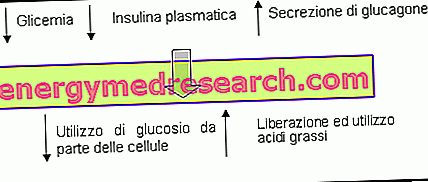
What is Zebinix?
Zebinix is a medicine that contains the active substance eslicarbazepine acetate. It is found in the form of white tablets (round: 400 mg; oblong: 600 mg and 800 mg).
What is Zebinix used for?
Zebinix is used to treat adults with partial onset seizures (seizures) with or without secondary generalization. It is a type of epilepsy in which there is excessive electrical activity in one part of the brain, which causes symptoms such as sudden spasmodic movements of a part of the body, alteration of hearing, smell or sight, numbness or sudden sense of fear. Secondary generalization occurs when the overactivity expands subsequently to the entire cortex. Zebinix should only be used as an adjunct to other anti-epileptic medicines.
The medicine can only be obtained with a prescription.
How is Zebinix used?
Treatment with Zebinix starts at a dose of 400 mg once a day, to be increased to 800 mg once a day after one or two weeks. Depending on the individual response, the dose may be increased up to 1200 mg once a day. Zebinix can be taken with or without food.
Zebinix should be used with caution in patients over the age of 65, as there is insufficient information on the safety of the medicine in these patients. Zebinix should also be used with caution in patients with kidney problems, adjusting the dosage based on renal activity.
The medicine is not recommended in patients with severe kidney or liver problems. Zebinix is also not recommended for children under the age of 18.
How does Zebinix work?
The active substance in Zebinix, eslicarbazepine acetate, is converted into the antiepileptic medicine eslicarbazepine in the body. Epilepsy is caused by excessive electrical activity in the brain.
For the electrical impulses to travel along the nerves, there must be a rapid movement of sodium into the nerve cells. Eslicarbazepine is thought to act by inactivating the "dependent sodium channels", thus preventing sodium from entering nerve cells. This reduces the activity of nerve cells in the brain, resulting in a decrease in the intensity and frequency of crises.
What studies have been carried out on Zebinix?
The effects of Zebinix were first tested in experimental models before being studied in humans.
Three main studies were conducted on a total of 1, 050 adults with partial onset seizures refractory to treatment with other medicines. All three studies compared Zebinix administered at different doses (400 mg, 800 mg or 1200 mg once a day) with a placebo (a dummy treatment). All patients were also given other antiepileptic medicines. The main measure of effectiveness for the three studies was the reduction in the number of seizures over 12 weeks.
What benefit has Zebinix shown during the studies?
From the three studies taken as a whole, it appears that Zebinix 800 mg and 1200 mg were more effective than placebo in reducing the number of seizures, when used in addition to other medicinal products. At the start of the study, patients had about 13 seizures per month. Over 12 weeks of treatment, patients taking Zebinix 800 mg and Zebinix 1200 mg fell to 9.8 and 9 seizures per month respectively, compared with 11.7 seizures per month of those given placebo.
What is the risk associated with Zebinix?
At least half of the patients treated with Zebinix reported side effects. The most common (seen in more than 1 in 10 patients) are dizziness and drowsiness. For the full list of all side effects reported with Zebinix, see the Package Leaflet.
Zebinix should not be used in people who may be hypersensitive (allergic) to eslicarbazepine acetate, to any of the other ingredients or to other carboxamide derivatives (medicines with a similar structure to eslicarbazepine acetate, such as carbamazepine, oxcarbazepine). It must not be used in people with second or third degree atrioventricular block (electrical transmission problem in the heart).
Why has Zebinix been approved?
The Committee for Medicinal Products for Human Use (CHMP) decided that Zebinix's benefits are greater than its risks for the treatment of partial-onset seizures with or without secondary generalization in adults who are also taking other anti-epileptic medicines. The committee recommended the granting of a marketing authorization for Zebinix.
More information on Zebinix
On 21 April 2009, the European Commission issued a marketing authorization valid for the entire European Union to Bial - Portela & Ca, SA.
The full EPAR for Zebinix can be found here.
Last update of this summary: 02-2009.



